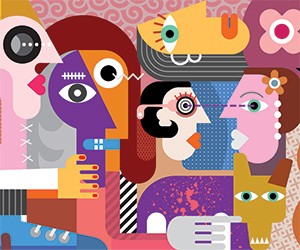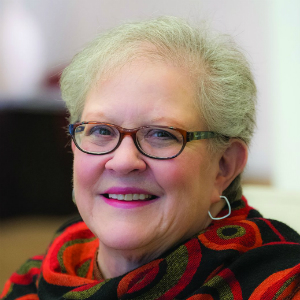I first met Ken Fischer not long after I moved to D.C. in 1978. He was just leaving his job at the Institute for Educational Leadership to establish a conference consulting company that he ran until 1983, when he started managing performances at the Kennedy Center—and introduced me to the Kings Singers.
When I decided to attend MPI’s Institute program in 1981, the year I founded my company, Ken was one of the instructors on adult learning styles. Now, he is president emeritus of the University Musical Society and guest faculty at the University of Michigan, Ann Arbor. He’s also the author of Little Big Winners: 77 Ideas for a Better Conference.
Connect with Ken here: kenfisch@umich.edu.
Because of Ken’s background in performance management, and because of what I learned from and with him years ago, and because he had long been an active participant in arts organizations’ conferences, I asked him for ideas of what could be done to incorporate elements of theatre into meetings. This has been edited for clarity and space in the hopes we’ve not made any errors in the intent.
“I began 17 conferences with a play rather than a keynote speaker. In advance, I’d meet with the client, spending time getting background on the organization, learning where they'd been, where they were, and where they hoped to go. Then I’d learn about the people in the organization who would be candidates for roles in the play. Needed were people who could take direction, had wide knowledge of the organization, could project, and would say 'yes' to being part of a dramatic presentation. We tried to eliminate anyone with ‘baggage.’
“Scenarios were created for each of five scenes: 10 years ago in the organization, five years ago, three days after the conference, five years later and 10 years later. This gave the organization a chance to deal with the evolution from past, present and to the future. It was a great way for the organization to imagine its future.
“My job was to create the flow that would deal with the past/present/future issues, create characters, and then recruit the cast by phone. [If today, it’s imagined much of this work would happen via electronic means.] I would arrive a day before the conference and meet with the proposed cast to do a final assessment on whether the right people were cast for the right parts.
“The 'script,' which would identify which characters would be in which scenes and what needed to take place in each scene, was distributed. I’d walk the characters through 'the flow'; the individuals would create the sequence of dialogue, which would get them from point A to point B.
“We would 'rehearse' the entire play in one evening ... and present it the next evening. My role was similar to that of the narrator in Our Town. I would take the audience from one scene to the next, using a pianist to play some 'traveling music' that quietly accompanied the narration.
“This approach enabled the client to deal with real problems in the organization, to get lots of people involved in a creative activity that was engaging and fun, to recognize that 'the knowledge is in the room' and doesn't require an outside person to 'stimulate' the audience, and to imagine what the future could be like.”
Similarly, colleague LeAnne Grillo, partner in Spaces for Change (which is doing amazing work) and an active planner and educator for 30 years, wrote about her thinking about what she felt when attending live theatre and how she uses the creative process in her work.
You can connect with LeAnne here: leanne@spaces-for-change.com.
Joan: I asked LeAnne and others to describe, in 10 or fewer words, what they felt after attending live theatre and in what ways it impacted them.
LeAnne’s responses: “Exhilarated, challenged, privileged. Often my heart has been touched.
"The impact? Mostly it makes me remember how powerful live experiences are, how much I appreciate them and how I want to go again.”
Joan: I then asked for, in 10 or fewer words, what feelings she had after attending most conventions/conferences that you have not planned or managed?
LeAnne wrote: “It depends—I don’t go to many—some are superficial, some just poorly [done]. The impact, she said, was “I mostly get frustrated ‘cause I know what’s possible.”
Joan: Moving on, I asked what could be done to enhance meetings.
Her response was so on target that I included it here:
“We often incorporate jazz ensembles talking about the creative process in our work—there are lots of leadership capacities that artists and performers can help us understand.
“One of the main concepts of theatre (used more often than not) is theatre-style seating—that never works. We never use it—so I don’t want that to be transferred. …
“I think the whole creative process—how you put on a play or create an artistic experience that touches the heart—can and should be applied to the meeting industry.
"A play has a beginning, middle and end. So should a meeting. We bring people together through a shared emotional experience—we will get a lot more out of the experience.”
Joan: And my last question was, “If you ruled the meetings industry(!), what changes would you make to make conventions and conferences more engaging?” LeAnne’s response echoed much of what Charlotte St. Martin (in this related article), said: “Get out of the head and move into the heart.”
The responses to my questions were rich and reflective.
Of those responding, two had direct background in theatre and one came from a “Broadway family” who said what she got from theatre was “exhilaration, pure joy, inspiration, astonishment, renewed energy.”
Some said they, too, felt that from meetings. More often than not, most said that sessions at meetings were ho-hum—all the same and needed an infusion of what theatre and concerts provide.
It’s not adding “walk-in” music or a performance at a reception where everyone really wants to talk with others. It’s not necessarily having music at breaks or in the exhibit hall.
We have to find the right lessons and incorporate them.
Use the space below or on the main blog post to tell us what you think makes meetings worthwhile and what elements of theatre and concerts that make you feel alive you want to bring to meetings.
Let’s make 2019 the year we create—with our partners, who will stop turning the lights off and learn to set seating that allows for better sight lines and hearing—meetings that go beyond the ordinary.
Related Reading From the January 2019 Edition of Friday With Joan
- Add Elements of Theatre to Make Meetings That Inspire
- Charlotte St. Martin: Putting Theatre in Meetings
- What's Your Take? January 2019 Planner Survey
Click here to view additional content in the 01.04.19 Friday With Joan newsletter.







